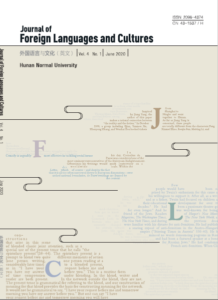Announcing publication of
Modernity @ Zero Hour:
The Question of the Universal
and the Origins of the Global Order
Barrett Watten (Guest editor)
Journal of Foreign Languages and Cultures
Hunan Normal University, Changsha, China
vol. 4, no. 1 (June 2020)
Table of contents [here]
Barrett Watten, introduction [here]
“Modernity @ Zero Hour: Three Women
(Lee Miller, Hannah Höch, Anonyma)” [here]
Maggie Rosenau
“Universality and the Zero Hour:
Interrelationship Between the Avant-Garde, Denazification,
and German-Language Literatures” [here]
Herman Rapaport
“The Ethical Break: Marguerite Duras, Jorie Graham,
and M. NourbeSe Philip” [here]
Lauri Scheyer
“Zero Hour and the Changing Same: Aesthetic Modernism
and Black Nationalist Identity” [here]
David Kellogg
“Modernist Non-Events: Disappearing Modernisms
in New York and Singapore” [here]
Parvinder Mehta
“Fractured Feminine Selves, Autospecular Affect, and Global Modernity:
Meena Alexander and the Postcolonial Artist as a Woman” [here]
Gary Huafan He
“Entropy and Utopia @ Zero Hour:
Modernity and the Manhattan Project” [here]
From the introduction
On or about the Zero Hour of 1945, Critical Theory propounded an essential relationship between modernity and destruction, between a purported rational order and the “noonday panic fear” of its violence, barbarism, irrationality. At the conclusion of the Second World War—with the victory over fascism, the murder of European Jews and others, mass civilian death, and the destruction of cities— a fundamental nature of modern societies was disclosed with material and ideological directness that led to universal questions of basic human rights that hitherto could not be asked. In the process, the global world system was recalculated on new terms predicated on a discourse of human rights, the dismantling of empires, ever newer means of destruction, and the emergence of the global economic system that we live today. Seventy-five years later, the global world order finds itself in another Zero Hour—the universal spread of disease that discloses, in startling and disturbing ways, the nature of global modernity and the inadequacy of its human guarantees. Also at this time, new questions are being asked: of the nature of the global system of production, distribution, and information, its impact on both humanity and the environment, but also of the basic rights of persons to life. In the United States, the wave of protests over the killing of African Americans George Floyd, Ahmaud Arbery, Breonna Taylor, and Rayshard Brooks, is a continued iteration of a long history of racial violence. But not only was the violence toward individuals disclosed—the fundamental denial of a right to life— but the systemic underpinnings of that violence, in the unequal distribution of wealth, increasing precarity of existence, and access to basic social guarantees, from justice to education to health care. The present moment has indeed become a second Zero Hour, recalling the first, at which questions of a universal nature must be asked. [contd. here]
Links
Document 86: Thinking Zero Hour
Entry 40: Isolate Flecks
Document 79: Modernity @ Zero Hour (ACLA)
Document 79: Modernity @ Zero Hour (CFP)













